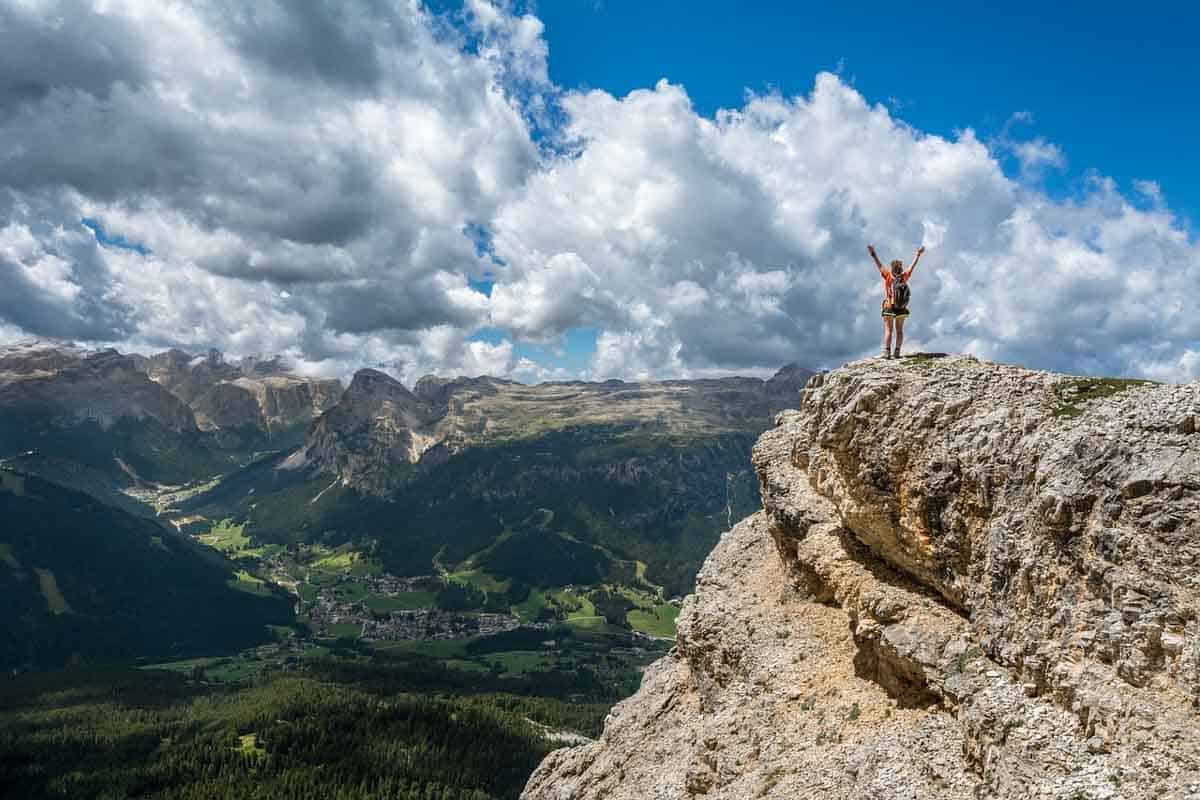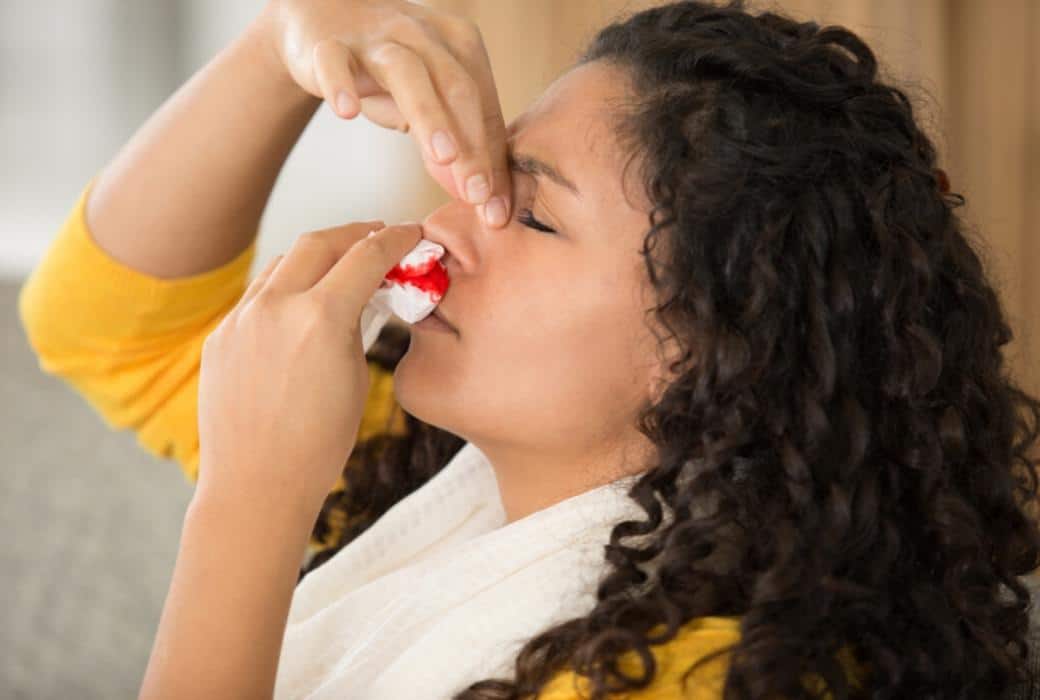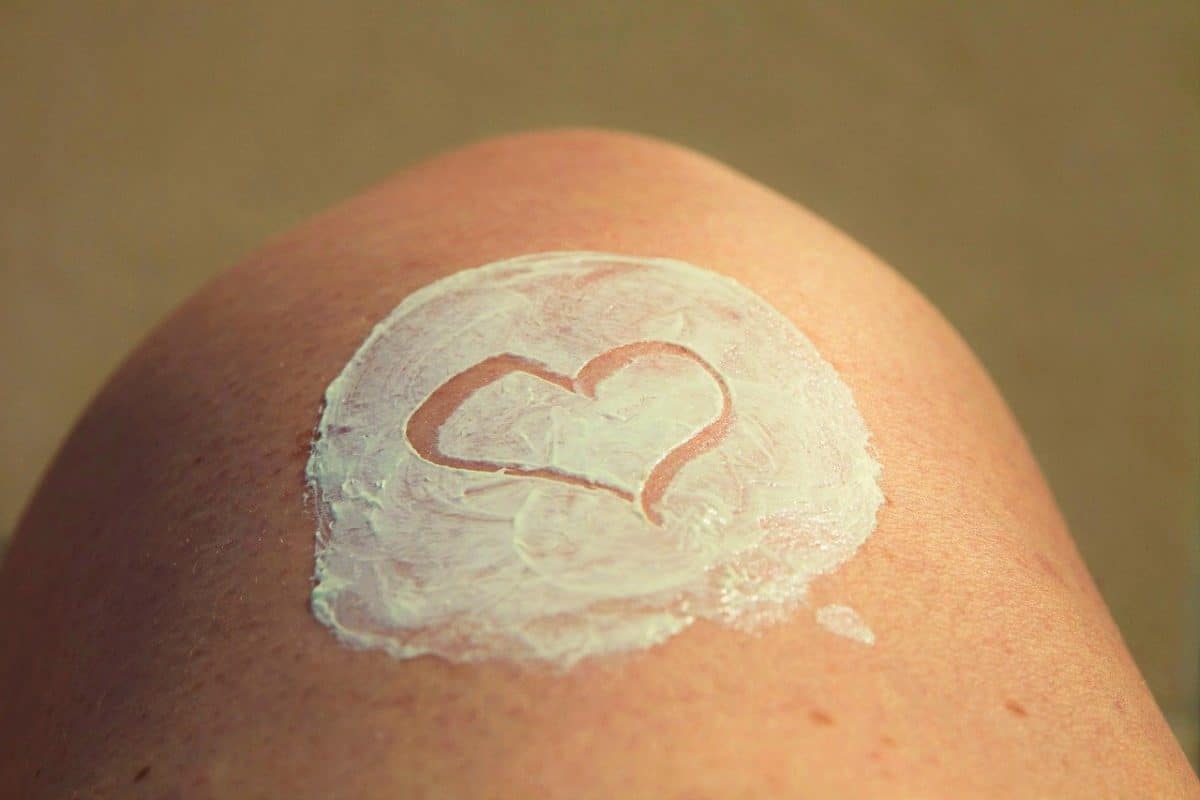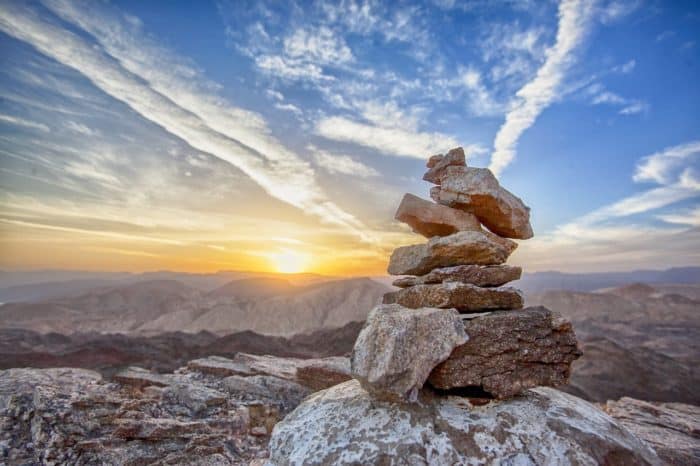In this Article
Toggle




From periods to poop to puke, high altitude destinations can wreak havoc on your body. Here are the answers to your most embarrassing questions about the impact altitude has on your body, including tips for adjusting to higher altitudes and ways to keep high altitude sickness at bay.
I have an MBA (and not an MD), so the advice in this article is based on what’s helped me adjust to higher altitudes during my travels. It should in no way be perceived as medical advice as I’m clearly lacking the letters required on my diploma to be a physician. For your specific needs, please seek medical care from a licensed provider.
Although I live about 1,000 feet above sea level in my home on a bluff above the Kansas River in Kansas City, I spend six to eight weeks a year in higher altitude locations. After huffing and puffing up a flight of stairs, many headaches, and other common signs of high altitude illness, I got smart and started following these tips for adjusting to higher altitudes each visit. Whew! I felt like a new woman!
But as I dug in to learn more about adjusting to higher altitudes and ways to keep high altitude illness at bay, I was shocked at the questions travelers ask almighty Google about high altitude. From bathroom experiences to nosebleeds (and beyond) here are the answers to your most embarrassing high altitude questions.
To help offset the costs of running EverydayWanderer.com, you’ll find affiliate links lightly sprinkled throughout the site. If you choose to make a purchase via one of these links, there’s no additional cost to you, but I’ll earn a teeny tiny commission. You can read all of the legal blah blah blah (as my little niece says) on the full disclosure page.

What is Considered High Altitude?
Before answering all of your embarrassing questions about adjusting to altitude, let’s define high altitude. According to National Geographic, a destination is considered high altitude if it’s at least 8,000 feet above sea level.
Many people in the United States are located near coastal areas, living at a relatively low elevation of around 500 feet above sea level. And because you may start to experience symptoms of altitude sickness with a gain of just 1,000 feet in elevation, high altitude locations like Salt Lake City (4,300 feet above sea level), Denver (5,280 feet above sea level), and Albuquerque (5,300 feet above sea level) may affect you — even if they’re not officially considered high altitude areas.
How to Prepare for High Altitude
If you plan to visit a high altitude location, there are several steps you can take to reduce your risk of altitude sickness including ascending gradually and abstaining from alcohol and heavy exercise for the first few days of arrival. For additional information, check out these recommendations from the CDC.

Does High Altitude Affect Periods?
Anyone who has ever experienced menses knows that we women are tough chicks. That said, any stressor can impact our menstrual cycles. And even when it’s fun, travel can be stressful.
You may be jet lagged as your body adjusts to a new time zone. You may be mentally fatigued from overcoming language barriers. Or, you may have a tough time getting a good night’s sleep away from home.
Now let’s add high altitude into the mix.
The International Climbing and Mountaineering Federation (also known as the UIAA based on its French name), reports that high altitude can cause periods to be longer, shorter, or irregular.
So, if you’re traveling to a higher altitude, be sure to have extra supplies with you in case you start your period unexpectedly or it lasts longer than it typically does at home.
Related Article: 14 Super Easy Ways to Avoid Getting Sick While Traveling
Enjoying This Article?
Sign up for the newsletter!
Thank You for Subscribing!

Can Higher Altitudes Cause Nosebleeds?
Since we’re already talking about blood, let’s move a few feet up the human body and answer the question, “Does high altitude cause nosebleeds?”
Dry climates and higher altitudes can contribute to nosebleeds. And since the air is thinner and drier at higher altitudes, it’s not uncommon to experience increased dryness or cracking inside your nostrils, resulting in a bloody nose.
To help prevent nosebleeds at higher altitudes, keep your nose moist by running a humidifier. It will help you combat the dryness that can contribute to nosebleeds at higher altitudes. Most hotels in high altitude locations have them available at no extra charge if you inquire at the desk.
I like to add a few drops of essential oils based on my high altitude sickness symptoms. Because I never travel without lavender essential oil, adding a few drops of it to my humidifier helps fight the headache and nausea I often feel when I am at high altitudes.
Sage Advice: Another way to prevent nosebleeds at higher altitudes is to gently apply ointment to the inside of your nostrils to help reduce dryness. When I was a kid, my mom would have used petroleum jelly. But in today’s world, I use coconut oil, cocoa butter, shea butter, lanolin, or jojoba oil.
As with regular nosebleeds, if you experience one at high altitude, Medical News Today recommends taking these steps:
- Sitting upright with your head bent slightly forward (not backward as you may have heard in the past), gently pinch the soft part of your nose together and breathe through your mouth. Allow up to 20 minutes for the bleeding to stop.
- If the above is successful, apply an ice pack (as needed) to soothe the area, and avoid strenuous physical activity for a few days.
- If the above is not successful after 20 minutes, seek medical attention.

Can Higher Altitudes Make You Vomit?
While one of the most common symptoms of altitude illness is a headache, higher altitudes can impact different people in different ways. When it comes to the stomach, some high altitude travelers experience a loss of appetite, nausea, or vomiting.
Yes, traveling to higher altitudes can make you feel like you’re suffering from morning sickness during the first trimester of pregnancy. And just like keeping something in your tummy helps manage morning sickness, a similar approach works for altitude sickness.
To help reduce nausea and vomiting at higher altitudes:
- Consume complex carbohydrates like oatmeal, sweet potatoes, brown rice, squash, and beans.
- Pound plenty of potassium by eating bananas, broccoli, and avocado.
- Increase your iron by eating beef, bison, or dark-meat turkey. Pescetarians should opt for tuna, salmon, oysters, and mussels. And vegetarians and vegans can add iron through foods like eggs, spinach, broccoli, and kale.
Do You Burn More Calories at High Altitude?
According to this article from Banister Nutrition, a consulting practice of dieticians based in Oklahoma City, you do spend more calories at higher altitudes. However, the amount of additional calories burned by one person doing the same physical activity at sea level versus high altitude is minimal.

Do Higher Altitudes Make You Drunker?
As good as red wine purports to be for your heart health, it’s a good thing to avoid at higher altitudes. And don’t rush to replace your glass of grenache with a cocktail or craft beer, because alcohol is an all-around no no at higher altitudes.
As you adjust to higher altitudes and a more arid environment, your body loses water, which can quickly lead to fluid loss and dehydration. Because alcohol is a diuretic, it only exacerbates the situation. (And if that news isn’t depressing enough, coffee is also a diuretic and should similarly be avoided at higher altitudes.)
Before, during, and after your trip to a higher altitude destination, replace your favorite coffee and alcoholic beverages with drinks that hydrate to help keep altitude illness at bay. As a general rule, you’ll want to consume roughly two times the amount of water at higher altitudes than what’s required at home.
While plain old water will get the job done, you may want a splash of something a little sexier from time to time. Here are a few suggestions:
- Add slices of lemons, limes, or oranges to your water for a fruit-infused treat
- Sip sports drinks or Smartwater packed with electrolytes like potassium, magnesium, calcium, and sodium
- Consider pure coconut water, which is naturally rich in potassium

Do Higher Altitudes Make You Pee More?

Do Higher Altitudes Make You Fart?
Yup, high altitude causes gas. And here’s the nerdy reason why…
There is lower atmospheric pressure at higher altitudes. Something known as the ideal gas law explains why the same mass of gas expands and takes up more space in your bowels. The greater the volume of gas building up in your belly, the more likely you are to pass it.
So whether you’ve settled into a cruising altitude on a transatlantic flight or are spending a weekend in Taos at 7,000 feet above sea level, you’re likely to be impacted by the ideal gas law. (But your extra toots may not seem so ideal to those around you.)
Why is it Harder to Breathe at Higher Altitudes?
It’s not uncommon to experience shortness of breath at higher altitudes. This is because the air at higher altitudes has lower oxygen levels because it contains fewer oxygen molecules. Therefore, you need to take more breaths to get the same amount of oxygen into your lungs than at lower altitudes.
Does High Altitude Cause Bloating?
Yes, the same gas law tied to increased farting (see the section immediately above) can also cause bloating.
Does High Altitude Cause Swelling?
Peripheral edema is the fancy medical term for swelling in your lower legs or hands, and it can sometimes happen when traveling to higher altitudes.

Do Higher Altitudes Make You Poop More?

Does High Altitude Make You Tired?
High altitude illness doesn’t discriminate. It doesn’t care if you’re old or young, male or female, a couch potato or an Olympic athlete. Whether you are taking your first trip to a high altitude destination or you visit higher altitudes frequently, you can still suffer from altitude illness at any time, during any visit. And the symptoms of altitude sickness can be as unique as you are.
When it comes to sleep, higher altitudes can be two-faced. Some travelers can experience increased fatigue while others battle insomnia when they try to sleep at night. Or, if you’re extra lucky (like me), you deal with both.
To help battle fatigue, take it slow and rest when you can. Whether you walk, run, hike, climb, or ski, cut your physical activity to about 50-75% of what you normally do for the first few days to help prevent high altitude sickness from sidelining your adventure. If you’re feeling tired, move to a less strenuous activity for a while or take a nap (if you can).
If you’re exhausted and struggling to get a good night’s sleep, follow these rules from every insomniac’s handbook:
- Try to eat dinner two to three hours before bedtime. This timing will allow your body to digest the meal and make it easier for you to get a good night’s sleep at higher altitudes.
- Do your best to sleep in an environment between 68-72 F (20-22 C), the ideal temperature for a good night’s sleep.
- Be sure to shut down technology at least an hour before bedtime. From mobile phones to tablets to laptop computers, our favorite devices can stimulate our minds and prevent us from winding down.
- Power down your brain by striking a few yoga poses or practicing deep breathing techniques to help prepare your mind and body for bed.
- Breathe in lavender essential oil to help you relax and usher in sweet dreams instead of a restless night.
And I don’t have to tell you to drink plenty of water or cut back on coffee and alcohol, because you’re already doing those things based on the related embarrassing questions answered above!

Do Higher Altitudes Cause Dry Skin?
Higher altitudes are hard on your skin. You probably already know that you are more susceptible to sunburn at higher altitudes. But did you know that it’s harder for your skin to heal at higher altitudes? Whether you have a cut or scrape, sunburn, or dry skin, the overall stress that higher altitudes place on your body paired with your body’s reduced ability to deliver oxygen make recovery harder than at lower altitudes.
Many high altitude destinations are quite arid. Examples include Salt Lake City, Denver, Taos, and Mexico City. Lower humidity levels at any altitude can leave your skin feeling parched. And when you pair arid and semi-arid climates with higher altitudes, your skin can feel especially dry.
The best way to avoid dry skin at higher altitudes is to stay hydrated, inside and out. Be sure to drink plenty of water (and prepare to pee more per embarrassing high altitude question #5 above). You should also wear sunscreen to protect your skin from the increased sun exposure that accompanies higher altitudes.
Be sure to lather up with moisturizer, ideally when your skin is still damp from a shower or washing your hands. And, if possible, run a humidifier to add more water to the air and further protect your skin at higher altitudes.
What Embarrassing Questions Do You Have About Higher Altitudes?
Do you live at a higher altitude? Do you frequently travel to a destination with higher altitudes? What other embarrassing questions do you have about adjusting to higher altitudes? Share your thoughts in the comments section below.
Ready to Go?
Use These Helpful Links to Book Your Trip!
- Find low fares with airfarewatchdog and Skyscanner
- Book your plane ticket with Expedia or Kayak
- Or take the scenic route on an epic road trip in a rental car or an RV from Outdoorsy
- From hotels to private homes, find the perfect accommodation with Hotels.com or Vrbo
- Travel in style with a suitcase, carry-on, backpack, or handbag from eBags
- Save on tickets to attractions, sightseeing tours, and more with CityPASS, Tiqets, and Viator
- Don’t leave home without travel insurance from AXA
- Discover the sights, history, and culture of your destination with an interactive scavenger hunt
- Need something else to plan your perfect trip? Visit my travel resources page for more trusted partners. Happy wandering!
Thank you for sharing!




I had no idea that altitude affects the body in so many different ways. I have been to high altitude cities only a few times, but I have done a few hikes at over 3,000 meters and I remember feeling a little bit light headed. The longest hike was the Salkantay Trek, which thankfully was a great experience because I took my time to acclimatize for a few days, before starting the trail.
Interesting! We live at high altitude and we’ve both noticed whenever we go to sea level, our joints stop aching so much. Maybe it’s a thing!?!?
Maybe?!?
I went from 44’ to 9515’ and have never felt better. I’ve never experienced any altitude sickness, even when we go up to the 14ers. I suffered from insomnia for many years but have not had a problem sleeping at higher elevation. The only thing I think is legit about the article is the aridity… it’s no joke. Drink water, use sunscreen, get sunglasses and remember to LEAVE NO TRACE when visiting our mountains!
Oh, Jujubee, I sooooo envy you! I live at maybe 500′ and like many people, it takes me days to adjust to the 4,000′ and 5,000′ locations where most of my family now lives. Such wicked headaches, insomnia, and more. Do you have a secret to life at 9,500′ that I haven’t captured here?
I am originally from Colorado, but have been living in Oregon at about sea level for school. Whenever I come home to visit, I have been getting a lot of canker sores. Is this another possible symptom of the altitude? Wondering if it is because of a dryer mouth at elevation.
Hi Olivia! I am not sure about that and couldn’t find an online medical source to confirm or deny your theory. Maybe chat with your physician, and do let me know what they say.
My husand and and I (51 and 46 respectively) moved from sea-level (2003) to 8000 feet and decided we loved the area so much we would build a 2 story 1600 sq. ft. house.
Yes, we did 90% of the work ourselves, and yes, we suffered from altitude sickness. Especially at night when we needed to rest and recover, we would wake up gasping for breath!! Solution? Not in your standard medical books, (possibly not for those with serious health issues related to blood pressure) we would take 2 aspirin and a single beer. The aspirin to thin the blood (thinner blood carries oxygen better) and the beer to help relax. We are NOT every day drinkers, but for medical reasons we don’t know about, a single beer worked better than none. Just thought I would share our experience.
Sea-level to 8,000 feet is a pretty big adjustment! Thanks for sharing your remedy, and I certainly hope you’re all adjusted by now in your gorgeous new home! <3
Yes, yes, and yes! Love this post. We live at sea level, but vacation a lot in Colorado and these are all essential things to know about how higher altitude affects your body. After many times suffering, I’m starting to remember that it gives me super dry and then ultimately a bloody nose every single time. 🙂
It took me quite a bit of trial and error (and a lot of trips to higher altitudes) to know what worked best for my body!
That is a great collection of questions. Some of these look familiar as we have these same questions when we travel to high altitude destinations…hahaha. This will be a good reference for us. One local remedy for preventing altitude sickness we came to know while traveling in Peru, is cocoa leaves.
I’ve heard so much about the cocoa leaves in Peru. That will be good to know when I get to visit high altitude destinations in South America!
Thank you for addressing a topic that really does plague so many people. I love your tips and will definitely use them next time I find myself in a high altitude situation. 🙂
This is amazing. Such a unique post & so so interesting! I always knew about the nose bleeds and headaches but that’s about it.
I think the most important thing is to take it slow for the first few days at high altitude to give your body time to adjust. And, if in e.g. South America, drink the coca tea that they brew. It really helps!
Taking it slow the first few days really helps me adjust to altitude when visiting family in the US West. I’ve heard great things about the tea in South America. I’ll be sure to heed that advice when I get a chance to visit that part of the mountainous world!
I love this post – since one of the things I remember best from my trip to Peru is my altitude sickness. I was sooo dizzy – wasted without the yummy drinks 😉 Obviously, I bought some tablets – which made my nostrils paper-dry so I actually did end up with a nosebleed. So it’s good that you prepare people for what might happen #spoileralertmostwelcome
Such a helpful post especially since I’m doing Everest soon!!
Oh, wow, that’s amazing! Good luck, and be safe!
These are so funny – but true! I get so dehydrated that my legs cramp up — a lot! Good tips to deal with these circumstances.
Try more potassium to stay ahead of the cramps!
What an amazing post! I’m fascinated by all the questions you answered. Seems like questions my kids would ask, but I wouldn’t know the answer to. Now I do!
Kids are hilarious! (And now you’re armed with the answers to all of their questions!)
I have been sick but that was my own fault for hiking on an empty stomach and not drinking enough. Thankfully I haven’t had any of the other things happen!
In your defense, I do find it hard to have an appetite at higher altitudes sometimes!
I get ill. Starts with a headache and then goes to nausea. Sleeping becomes a struggle because of the lack of oxygen. After three days I’m no better and ready to leave. I’ve heard Gas X before, during, and after alleviates a lot of these maladies. Has anyone tried this.
This list will definitely prepare you for any embarrassing symptom you may have. I had no idea you should urinate more often and if you are not you could be dehydrated. Great tip!
Now you know! 🙂
I love this post! This answered all my (most embarrassing) questions about high altitude and the affects it has on my body! Luckily growing up I lived in a mountainous town and enjoyed hiking through high altitudes so this stuff doesn’t effect me as much anymore! I do still get short of breath though with the decrease in oxygen, and my boyfriend does get some nasty farts!
It’s that winded feeling the first few days that always hits me hardest. That, and the headaches!